Scientific Information/Data
The average diet can be lacking in complete nutrition due to modern food-production techniques, poor food choices, and nutrient-depleting preparation methods.[1-3] Combine these with the toll of lifestyle stress and oxidizing chemicals—found in foods and the environment—and it becomes essential to ensure comprehensive foundation nutrition for the body. To help achieve this, each cellophane-wrapped packet of ActivEssentials with OncoPLEX & D3 contains the following XYMOGEN formulas and ingredient combinations:
ActivNutrients® without Iron This high-quality, hypoallergenic multivitamin/mineral blend provided in vegetable capsules not only features activated vitamin cofactors and patented Albion® chelated mineral complexes, but it also includes folate as 5-MTHF as well as methylcobalamin as MecobalActive™. The form of 5 MTHF is Quatrefolic®, which is proven to have greater stability, solubility, and bioavailability compared to calcium salt forms of 5-MTHF.[4] MecobalActive is a patented form of methylcobalamin that has very high purity; no harmful solvents are used in its production.[5] The balanced nutrient profile in ActivNutrients™ without Iron supports vitamin/mineral synergistic activity; antioxidant protection with vitamins C and E, selenium, and carotenoids; and phase I detoxification.*
OmegaPure 600 EC™ Each enteric-coated softgel contains 1 g of fish oil, delivering 360 mg of eicosapentaenoic acid (EPA) and 240 mg of docosahexaenoic acid (DHA). A rigorous, proprietary, temperature-controlled/vacuum technology is used for purification and manufacturing. Stringent verification processes reduce any potential health risks that may otherwise result from the oil’s exposure to rancid fats, toxins, bacteria, molds, yeasts, or very high levels of fatsoluble vitamins, such as vitamin A. XYMOGEN is proud to provide this International Fish Oil Standards (IFOS) five-star certified formula, which assures the highest level of purity, stability, and potency in fish oils. In addition to complying with a host of federal and state regulations, our supplier also agrees to adhere to voluntary guidelines for manufacturing and to a code of ethics as members of the Council for Responsible Nutrition. Research suggests that consumption of EPA and DHA omega-3 fatty acids may support cardiovascular health.[6] Studies have also shown that fish oils may support healthy cytokine production, promote optimal joint function[7], and support overall brain and nervous system function.*[8]
OncoPLEX™ and D3 This combination contains truebroc™
glucoraphanin, a patented phytochemical derived from broccoli extract that is featured in XYMOGEN’s OncoPLEX formulas, and bioactive D3.
These two nutrients continue to be the focus of much research for their protective roles at both system and cellular levels.*
OncoPLEX delivers 15 mg of glucoraphanin, the glucosinolate in broccoli that converts to sulforaphane in the body. Extensive research
suggests that when glucoraphanin is enzymatically converted to sulforaphane (its active form), it safely and effectively supports the
Nrf2 system, antioxidant systems, and vital phase II detoxification enzymes.[9,10] This process provides protection from common toxins
and xenobiotics. In addition, sulforaphane has been shown to support normal cell-life regulation.[11-14] It has also been shown to support the
body’s response to harmful microbes, a healthy response to agingassociated changes in cytokine production, and eye and cardiovascular
health.*[15-19] D3 is provided as 2000 IU of cholecalciferol, identical to the form in which it is derived in the body from cholesterol and synthesized by sunlight on the skin. Although vitamin D forms are similar biochemically, a recent study reported D3 to be approximately 87% more potent in raising and maintaining serum 25-hydroxyvitamin D (25[OH]D) concentrations and in producing two- to threefold greaterstorage of vitamin D than did equimolar D2 (ergocalciferol).[20] In addition to musculoskeletal benefits, research now suggests thatoptimal serum levels of vitamin D support normal cell differentiation, cardiovascular health, normal immune function, good balance, healthy mood, normal fetal development, neuronal growth and neurodevelopment, healthy glucose metabolism, periodontal health, and normal intestinal immune responses.*[21-23]
*These statements have not been evaluated by the Food and Drug Administration.This product is not intended to diagnose, treat, cure, or prevent any disease.
References
1. National Health and Nutrition Examination Survey. Centers for Disease Control and Prevention. http://www.cdc.gov/nchs/nhanes.htm. Accessed February 22,2011.
2. What we eat in America. USDA Agricultural Research Service. http://www.ars.usda.gov/main/site_main.htm?modecode=8040-05-30. Accessed September16, 2015.
3. Worthington V. Nutritional quality of organic versus conventional fruits, vegetables, and grains. J Altern Complement Med. 2001 Apr;7(2):161-73. [PMID: 11327522]
4. Quatrefolic. http://www.quatrefolic.com/4thGeneration.html. Accessed May 22, 2014.
5. Sallares J, Petschen I, Camps X, inventors; Ferrar Internacional, S.A., applicant. Process for the production of methylcobalamin. International publication number[English] WO 2006100059 A1. September 28, 2006.
6. FDA announces qualified health claims for omega-3 fatty acids. U.S. Food and Drug Administration Department of Health and Human Services. http://www. fda.gov/NewsEvents/Newsroom/PressAnnouncements/2004/ucm108351.htm. Accessed February 27, 2011.
7. Proudman SM, Cleland LG, James MJ. Dietary omega-3 fats for treatment of inflammatory joint disease: efficacy and utility. Rheum Dis Clin North Am. 2008 May;34(2):469-79. [PMID: 18638687]
8. Cole GM, Ma QL, Frautschy SA. Dietary fatty acids and the aging brain. Nutr Rev. 2010 Dec;68(suppl 2):S102-11.[PMID:21091943]
9. Ping Z, Liu W, Kang Z, et al. Sulforaphane protects brains against hypoxicischemic injury through induction of Nrf2-dependent phase 2 enzyme. Brain Res. 2010 Jul 9;1343:178-85. [PMID: 20417626]
10. Vauzour D, Buonfiglio M, Corona G, et al. Sulforaphane protects cortical neurons against 5-S-cysteinyl-dopamine-induced toxicity through the activation of ERK1/2, Nrf-2 and the upregulation of detoxification enzymes. Mol Nutr Food Res. 2010 Apr;54(4):532-42. [PMID: 20166144]
11. Cheung KL, Kong AN. Molecular targets of dietary phenethyl isothiocyanate and sulforaphane for cancer chemoprevention. AAPS J. 2010 Mar;12(1):87-97. [PMID: 20013083]
12. Shapiro TA, Fahey JW, Wade KL, et al. Chemoprotective glucosinolates and isothiocyanates of broccoli sprouts: metabolism and excretion in humans. Cancer Epidemiol Biomarkers Prev. 2001 May;10(5):501-08. [PMID: 11352861]
13. Ho E, Clarke JD, Dashwood RH. Dietary sulforaphane, a histone deacetylase inhibitor for cancer prevention. J Nutr. 2009 Dec;139(12):2393-96. [PMID: 19812222]
14. Chu WF, Wu DM, Liu W, et al. Sulforaphane induces G2-M arrest and apoptosis in high metastasis cell line of salivary gland adenoid cystic carcinoma. Oral Oncol. 2009 Nov;45(11):998-1004. [PMID: 19589718]
15. Yanaka A, Fahey JW, Fukumoto A, et al. Dietary sulforaphane-rich broccoli sprouts reduce colonization and attenuate gastritis in Helicobacter pyloriinfected mice and humans. Cancer Prev Res (Phila Pa). 2009 Apr;2(4):353-60. [PMID: 19349290]
16. Zakkar M, Van der Heiden K, Luong le A, et al. Activation of Nrf2 in endothelial cells protects arteries from exhibiting a proinflammatory state. Arterioscler Thromb Vasc Biol. 2009 Nov;29(11):1851-57. [PMID: 19729611]
17. Noyan-Ashraf MH, Sadeghinejad Z, Juurlink BH. Dietary approach to decrease aging-related CNS inflammation. Nutr Neurosci. 2005 Apr;8(2):101-10. [PMID: 16053242]
18. Gao X, Talalay P. Induction of phase 2 genes by sulforaphane protects retinal pigment epithelial cells against photooxidative damage. Proc Natl Acad Sci USA. 2004 July;101(28):10446-51. [PMID: 15229324]
19. Wu L, Noyan Ashraf MH, Facci M, et al. Dietary approach to attenuate oxidativestress, hypertension, and inflammation on the cardiovascular system. Proc NatlAcad Sci USA. 2004 May;101(18):7094-99. [PMID: 15103025]
20. Heaney RP, Recker RR, Grote J, et al. Vitamin d3 is more potent than vitamin d2 in humans. J Clin Endocrinol Metab. 2011 Mar;96(3):E447-52. [PMID: 21177785]
21. Toubi E, Shoenfeld Y. The role of vitamin D in regulating immune responses. IsrMed Assoc J. 2010 Mar;12(3):174-75. [PMID: 20684184
22. Cannell JJ, Hollis BW. Use of vitamin D in clinical practice. Altern Med Rev. 2008 Mar;13(1):6-20. [PMID: 18377099]
23. Heany RP. Vitamin D in health and disease. Clin J Am Soc Nephrol. 2008
Sep;3(5):1535-41. [PMID: 18525006]


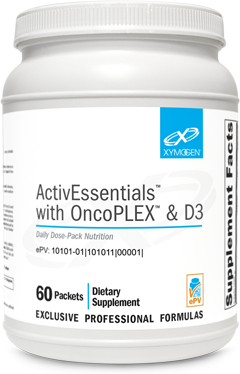
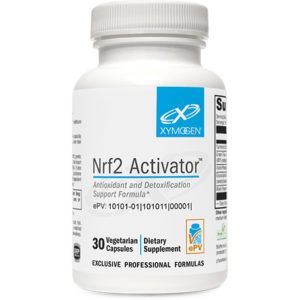
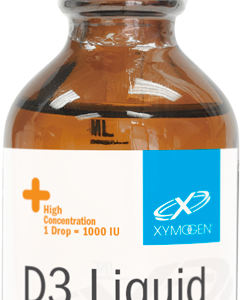
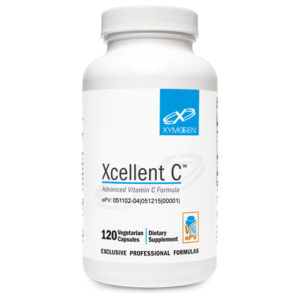
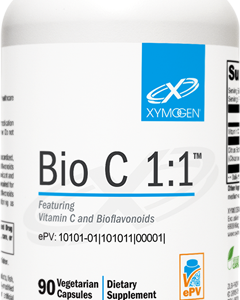
Reviews
There are no reviews yet.